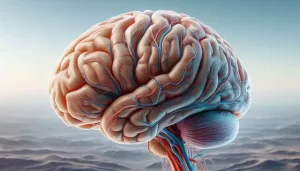Macrophage therapy: Long-term cultured macrophages can still function after transplantation back into the body
- A Persistent Crisis: The Looming Specter of Drug Shortages in United States
- Rabies: The fatality rate nearly 100% once symptoms appear
- Human Brain Continues to Grow: Study Shows Increase in Size and Complexity
- CRISPR Genome Editing: From Molecular Principles to Therapeutic Applications
- Metformin Helps Immune System Better Recognize Cancer Cells
- Highlights of Prostate Cancer Research at the 2024 EAU Congress
Macrophage therapy: Long-term cultured macrophages can still function after transplantation back into the body
- Red Yeast Rice Scare Grips Japan: Over 114 Hospitalized and 5 Deaths
- Long COVID Brain Fog: Blood-Brain Barrier Damage and Persistent Inflammation
- FDA has mandated a top-level black box warning for all marketed CAR-T therapies
- Can people with high blood pressure eat peanuts?
- What is the difference between dopamine and dobutamine?
- How long can the patient live after heart stent surgery?
Macrophage therapy: Long-term cultured macrophages can still function after transplantation back into the body
Macrophages are immune cells present in various organs of our body.
They act as tissue guardians, nourishing other cells and removing harmful substances such as bacteria, cellular debris, and tumor cells.
As a result, macrophages have become the focus of scientists as a potential new type of active drug that can be used to treat damaged organs, fight infection, and fight cancer.
However, to achieve this goal, cells must be grown in vitro in large quantities without losing their specialized functions. But so far, this has been difficult for macrophages. Scientists also have serious doubts that laboratory conditions may deprive macrophages of special abilities.
Recently, researchers from the Technical University of Dresden in Germany published a research paper entitled: Long-term culture-expanded alveolar macrophages restore their full epigenetic identity after transfer in vivo in the journal Nature Immunology , a sub-journal of Nature .
The study showed that macrophages grown in long-term culture under laboratory conditions functioned normally when transferred back into the body and were indistinguishable from macrophages that had never left the tissue, a finding that is based on macrophages. Novel cell therapy paves the way.

Proliferating cells in the laboratory, so-called cell culture, is a common technique that has made great strides in biology and medicine over the years.
However, cells grown in the lab are markedly different from their normal environment in the body, where cells are grown in petri dishes and soaked in artificial nutrients, and they need to adapt to this new culture environment.
We need to know exactly what changes these cells undergo over long periods of time in culture, and whether those changes are permanent.
The research team conducted an in-depth study of mouse alveolar macrophages (AM) , which are immune cells naturally present in the alveoli.
The research team grew these alveolar macrophages in the laboratory for several months and multiplied them.
While their appearance and general characteristics were unaffected, when examined more closely, it became clear that these cells had actually undergone many changes to adapt to their new environment.
It is well known that every cell in our body has the same genome, but each cell differs in that different genes are turned on and off, which is the selective expression of genes.
We can think of this as the molecular fingerprint of the cell, and by identifying the combination of genes that turn on expression, we can distinguish alveolar macrophages from intestinal macrophages, brain cells, and more.
However, the research team analyzed the gene expression patterns of mouse alveolar macrophages cultured for a long time in the laboratory and alveolar macrophages in mice, and found that there were significant substantial differences between the two. There are more than 3000 differentially expressed genes.
Next, the research team transplanted the alveolar macrophages grown in the lab for a long time back into the lungs of mice.
Detailed comparisons showed that these alveolar macrophages, grown long in the lab, were indistinguishable from macrophages that never left the lung after transplantation.
This suggests that the substantial adaptation and changes in gene expression that macrophages experience under laboratory culture conditions proved to be fully reversible.
When the lab-grown macrophages were transplanted back into the lungs, they quickly “forgot” what they had been through and changed in the lab dish, fully reverting to their normal function and state.

In vitro-cultured alveolar macrophages restore the transcriptional signature of normal alveolar macrophages after transplantation back into the body

In vitro-cultured alveolar macrophages
Although the study was conducted in mice, the research has very promising implications for human therapy. The ability of macrophages to transfer between cell culture conditions and their natural environment shows great potential for future macrophage-based cell therapy.
Alveolar macrophages can be proliferated in the laboratory and genetically engineered to fight a specific disease before being delivered to a patient’s lung, where they can begin performing their functions immediately. This has great potential for treating cancer, fibrotic diseases or other lung infections.
In fact, before that, Carisma Therapeutics initiated the CAR-M cell therapy of genetically engineered macrophages , which is the first CAR-M human clinical trial to treat recurrent or metastatic disease through genetically engineered CAR-M. HER2-positive solid tumors , this phase 1 clinical trial aims to verify the safety, tolerability and feasibility of CAR-M.
And recently announced the preliminary results of a phase 1 clinical trial , which showed that macrophages infused into patients showed high CAR expression and activity and were well tolerated.
In addition, preliminary data also show that CAR-M has the ability to alter the solid tumor microenvironment and alter the composition of myeloid cells and T cells . Details: First human clinical trial of CAR-M cell therapy shows promise for treating solid tumors
Specifically, primary monocytes are first isolated from patient blood and then modified with the desired antigen-specific chimeric receptor (eg, anti-HER2) .
The resulting CAR-M cells are cryopreserved, resuscitated and infused back into the patient when needed. CAR-M could reach immunologically “cold tumors,” or those that are normally undetectable or unresponsive to the immune system, activating them to help make them more receptive to treatment.
Tumor cells alone are difficult to stimulate the T cell activation process, but with macrophages, they can elicit responses by penetrating solid tumors, contact tumor cells in different ways, and survive within tumors, which makes CAR-M Completely different from CAR-T, it has great potential for solid tumors .
Currently, Carisma Therapeutics has 3 CAR-M research pipelines, targeting HER2 (treatment of HER2-positive solid tumors) , Mesothelin (treatment of mesothelin-positive solid tumors) and PSMA (treatment of metastatic castration-resistant prostate cancer) .
Reference:
https://www.nature.com/articles/s41590-022-01146-w
Macrophage therapy: Long-term cultured macrophages can still function after transplantation back into the body
(source:internet, reference only)
Disclaimer of medicaltrend.org
Important Note: The information provided is for informational purposes only and should not be considered as medical advice.



